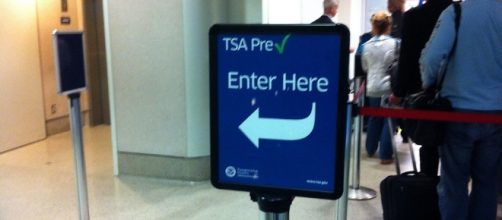The safety and security of the country’s airports is something which the United States takes very seriously after the 9/11 attacks. There are newer policies and rules that are constantly being tested and implemented to ensure that passengers and staff members are absolutely secure from any kind of threats. In doing so, the Transportation Security Administration or TSA, is now bringing into effect a new form of checking, which will give them a better understanding of electronic gadgets being carried by passengers.
TSA’s new policy on checking electronic gadgets
On Wednesday, the TSA announced that it would be implementing a new rule for airport checks in which all standard queue passengers will have to submit electronic gadgets bigger than a smartphone for screening and checking. These gadgets would mostly include items such as tablets, e-book readers, and handheld gaming consoles. Previously the TSA policy did not warrant the checking of such devices, but the new policy is set to change this.
These electronic devices would need to be placed inside bins without anything placed on top of the objects or below it. This procedure would be similar to the process of checking laptops that has been followed in the past.
No other changes were announced and there is no change in the list of items that one is allowed to bring through the lanes.
TSA Acting Administrator Huban A. Gowadia said while announcing the changes that it is crucial for the airport authority to update its procedures and security checks with the advancement of technology so that they can maintain better security against terrorism or any other forms of threat. In fact, the added checks of the Electronic Devices would make TSA members focus more closely on shutting down alarms and stopping terror threats.
Pilot program was launched in 10 airports
Before adopting the new checks as a policy, the TSA conducted the screening process in 10 of the country’s airports.
Only after the successful implementation of the system in these airports was the new procedure adopted. The 10 airports included Boise Airport, Colorado Springs Airport, Detroit Metropolitan Airport, Fort Lauderdale-Hollywood International Airport, Los Angeles International Airport, Logan International Airport, Lubbock Preston Smith International Airport, McCarran International Airport, Luis Muñoz Marín International Airport, and Phoenix Sky Harbor International Airport.
The TSA also noted that those passengers enrolled in the TSA PreCheck do not qualify for these screening procedures. The changes are being rolled out right now and will make its way across all of the airports in the country within a few weeks at the most. It remains to be seen how effective it proves for security.


